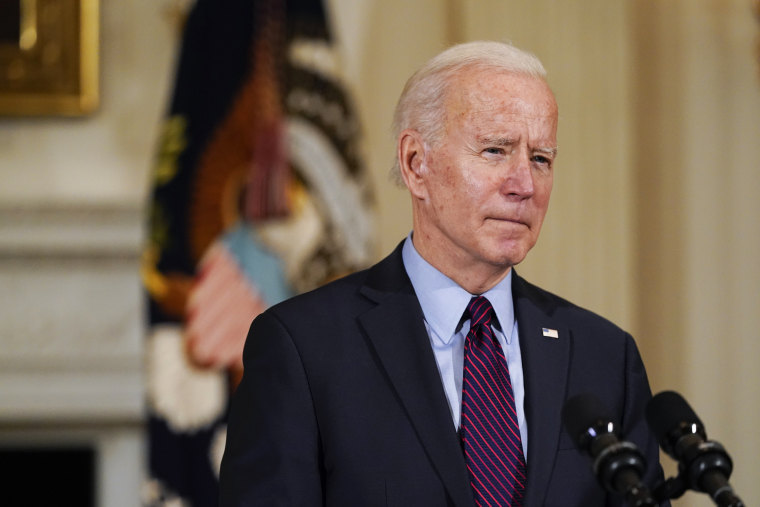President Joe Biden has weighed in on whether twice-impeached former President Donald Trump should ever receive another intelligence briefing. "I think not," Biden told "CBS Evening News" anchor Norah O’Donnell in an interview that will air in its entirety just before Sunday’s Super Bowl.
Biden is clearly correct to be concerned about Trump receiving future security briefings. Yet, if he doesn’t play this right, he risks being accused of going down the ugly path that his predecessor took by politicizing intelligence and threatening to revoke clearances as a punishment. There is a way Biden can address the national security risk posed by Trump, or by any ex-president who presents a threat, without falling into a trap that Trump and the GOP may be setting for him.
If Biden doesn’t play this right, he risks being accused of going down the ugly path that his predecessor took.
Former presidents often receive classified briefings as a courtesy for their service. The decision to offer such briefings ultimately rests with the incumbent president and is, to a degree, related to whether an ex-president should be allowed to maintain their security clearance. I’ve previously written that Trump poses a continuing national security threat because of his enormous personal debt and his sympathies toward Russia. Now I’m taking things a step further by asserting that no former president merits a lifetime security clearance.
After four years of the Trump administration, we've learned a large number of things must be fixed. Let’s add this to the list: Former presidents should not automatically maintain their clearances forever. Incumbent and former presidents alike can threaten national security. Accordingly, why would we continue to provide them with ongoing access to information sought by our adversaries?
"I just think that there is no need for him to have the intelligence briefings,” Biden told O’Donnell. “What value is giving him an intelligence briefing? What impact does he have at all, other than the fact he might slip and say something?" Biden is making some strong points here. But if we’re going to do this right, Biden’s words should apply to any ex-president, not just Trump.
On Saturday, the day after news broke of Biden’s comments, White House press secretary Jen Psaki sought to clarify his position: “The president was expressing his concern about former President Trump receiving access to sensitive intelligence, but he also has deep trust in his own intelligence team to make a determination about how to provide intelligence information if at any point the former President Trump requests a briefing.”
That’s precisely how we should handle all classified briefings of former presidents. We can utilize a case by case, “need to know” model already routinely used throughout the intelligence community. It would be overseen by intelligence professionals and approved by the president. If the situation merits it, a sitting president can, in consultation with their intelligence chiefs, issue a temporary security clearance to a predecessor and provide whatever specific briefing is needed.
Throughout history, such real-time briefs may have helped equip ex-presidents with the knowledge they needed to serve as emissaries. As members of a very exclusive club, former presidents can use their global clout — sometimes secretly — to negotiate, persuade or engage with complicated allies and adversaries.
Former President Jimmy Carter went to North Korea during President Bill Clinton's administration, for example, and engaged in nuclear talks. Carter may have been made privy to North Korea’s latest nuclear program developments before or after his trip. Once out of office, Clinton flew to North Korea to negotiate the release of two journalists held captive there. After that, former President George W. Bush and Clinton were tapped by President Barack Obama to lead fundraising efforts and oversee reconstruction and relief in Haiti following a devastating earthquake there in 2010. Their work required them to travel to the Western Hemisphere’s poorest country and meet with that nation’s head of state. Such a high-level meeting would usually be preceded by State Department briefings.
Biden has a chance now to tweak past precedent — and set his own. He should propose a change to the current policy and require former presidents to prove why they need classified intelligence, and the bar should be set relatively high. Sitting on a corporate board of directors or seeking a business opportunity abroad should not qualify as a “need to know.” And when a former president is a twice-impeached security threat, maybe — just maybe — they might never need to know.

